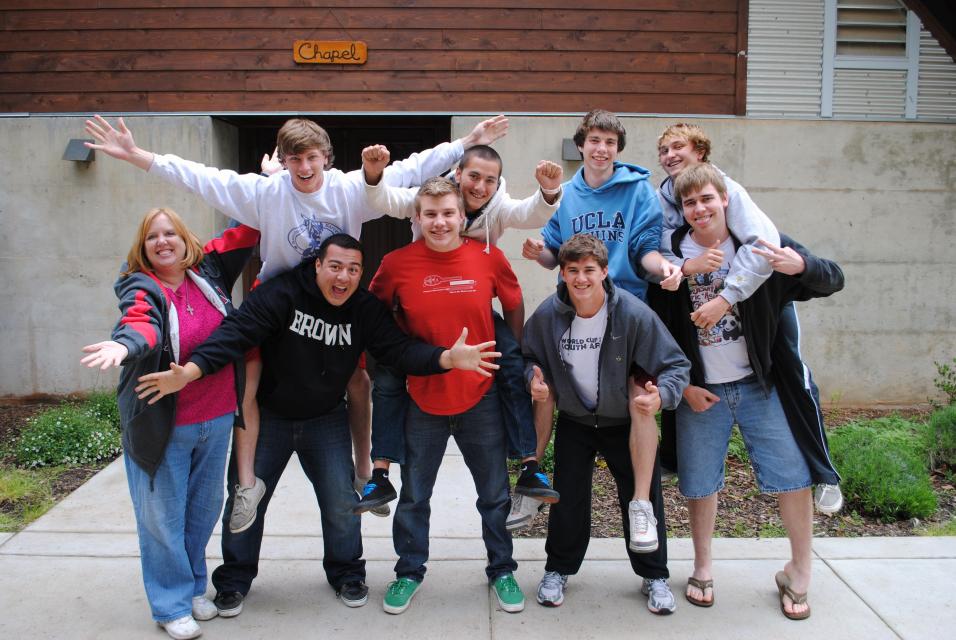Learn More About Kairos
The Jesuit High School Kairos Retreat begins after school on Tuesday and ends early on a Friday evening. There are four Kairos retreats each year for seniors. The final one of the year is for Juniors who will help carry on the tradition the following year.
Each retreat is led by a team composed of 8 seniors who have made Kairos and 8 faculty/staff members. The activities on Kairos are used to promote and build community, to foster trust and openness, and to encourage reflection. The key themes are: knowing oneself, discovering Jesus in a personal way, recognizing and responding to Jesus’ call, and living the message of Christ.
Significant benefits have come to our students from this retreat and to numerous members of our administration, faculty, and staff who have joined student leaders as team members. Kairos establishes trust. Students speak of their difficulties, joys, and hopes in ways new and rewarding to them. Family and friends become important. Generally, a stirring of sensitivity to self and others grows into a desire for reconciliation. Many retreatants have experienced a deep sense of consolation along with a generous increase of self esteem as a result of the retreat. The Kairos experience is permeated with a faith dimension. Each day begins and ends with prayer. Three Eucharistic Liturgies are celebrated and a special time given for the Sacrament of Reconciliation.
The faith dimension enters during talks as they are devoted to building a friendship with God. Faith elements are introduced when reflecting on how God, particularly in Jesus, is present in the personal experiences the team and retreatants share with one another. Each retreatant is encouraged to grow in awareness of the countless opportunities to meet God in our world, especially in others. There are many Ignatian values that naturally flow from the experience of Kairos. Each retreatant learns that he is loved, lovable, and loving. The retreatant comes to see Jesus in a new light, as a real friend, loving and calling him. Each retreatant is challenged to grow in relationships at home, and to deal with personal problems, and as a result, often seeks more caring friendships. Reflection is prominent throughout the retreat. Initially there are exercises to help the retreatant review what has been good and what has been difficult.
At several points in the day there are times for collecting and
digesting the events of the retreat. Structured methods help to
make this personal. Throughout the retreat, the retreatant is
encouraged to take notes and process feelings through journal
writing. Prayer that is genuine, personal, and real becomes a new
and happy experience for the retreatant. In the course of the
retreat there is a strong, gradual building of community. This
supports the retreatants during the retreat and also in the
follow-up period. The reality of this often shows up in the
school where visible, loving dimensions of community appear.
Ignatius’ motto, “Love is shown in deeds more than words,” is a
Kairos theme. The critical final phase of the retreat and the
follow-ups stress putting love into action.


